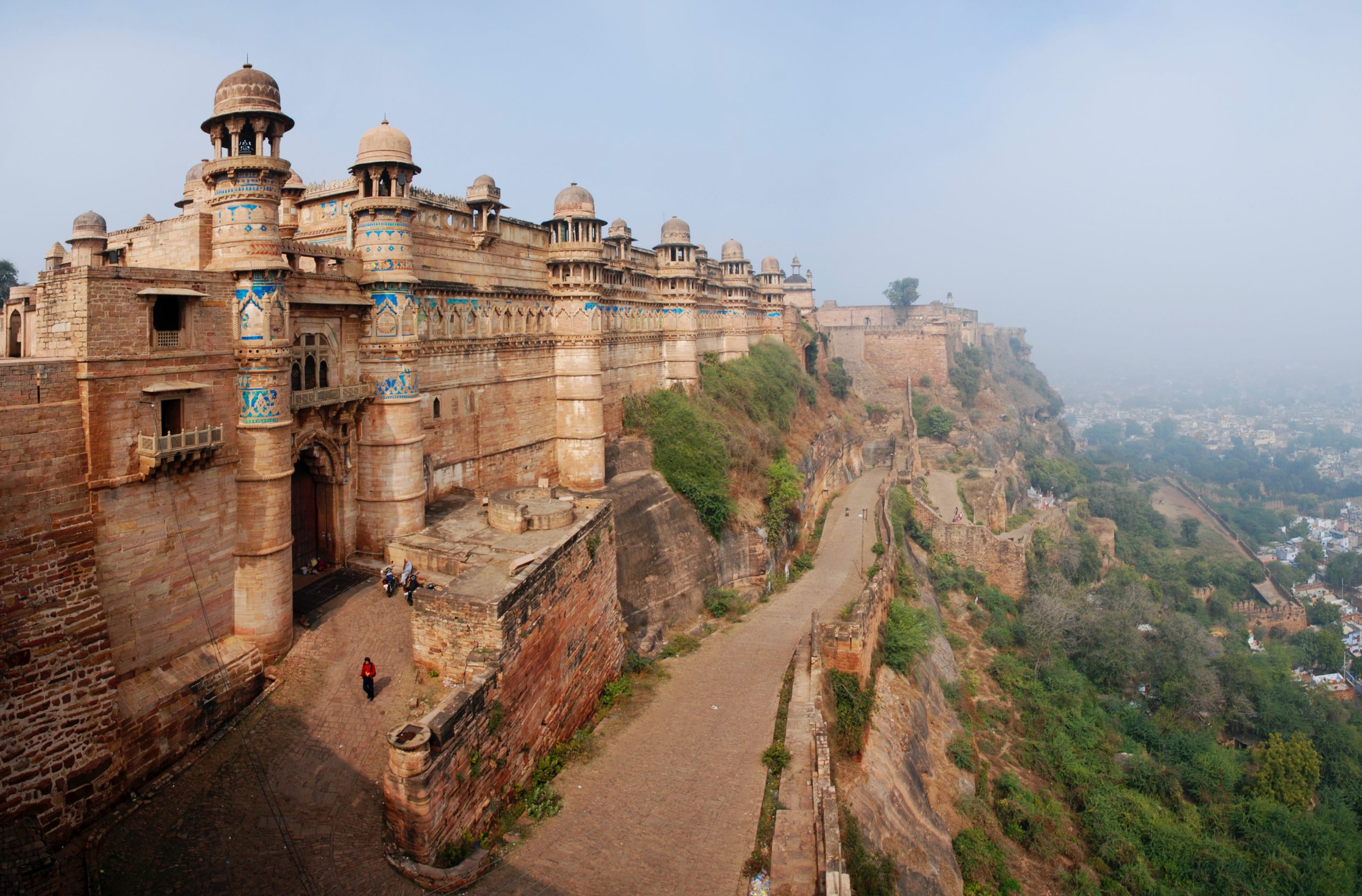Paperweight
Gwalior
ग्वालियर
A lost paperweight, well it was indeed lost until I found it lying absent minded on the plateau across our college. Across doesn’t mean straight across a road, it means across rugged plains and slopes claimed by swirling dust and wanderers, and desired by almost nothing sentient in the brutal grand scheme of economy. Everything to the west of our college seemed lost (or maybe just not found yet) while everyone frolicked to the south, where the city lies. It is thus to the west that we claimed a plateau as our hangout place and that is where I found the paperweight.
Bright glass with white and blue fern like forms captivated inside, something so beautiful, yet laughed at by my friends for being just an old paperweight, something so fascinating, yet lost in the sands of time, much like the city that held it – Gwalior. As I held it in my hand, strangely enough, it reminded me of our first acquaintance.
Like every other sane person, I personify cities at my leisure. When I was to leave home and head for a place 2000 kms away, I wasn’t scared as much as anxious for what it held for me. The train kept tugging us forward until we reached Gwalior, to be greeted by an exodus of humans swarming the railway station. Fighting my way out of haggling rickshaw walas, I saw her – a queen long lost.
I could easily weave a story for her but I didn’t need to, she told it herself. A beauty whose name reached far and wide back in the day, looted of her gems by seeming well-wishers, waiting for a betrothed lost in the hands of dacoits, she lives on weak, but mighty. Something about her is reminiscent of the past, perhaps it is because she never moved on. She swirls up dust in memory of her agony, an agony of past that now merely exists in the maroon air, its root long lost in the footprints of ordinary men who claimed her land and women who mostly followed.
For decades, she too told stories of kings and queens and artists, stories where every beat adorned marbled halls and every chisel, carved walls. She told them to any who would listen, but fewer humans stopped to do so with every passing day. Accepting the inevitable fact that she will also be lost in the pages of history as stories told by someone else, she walked up the giant fort one fine evening and decided to stay, once and for all. She saw her friends, or rather memories of them, playing beside the banyan tree, bangles and anklets beating in tune to a song she hummed, a song that was not hers, but theirs – of everything lost. She walked past the sentry. They couldn’t see her any more than they could see their own souls. She occupied a room facing east, against the city walls, where curious people came to see her, in all her glory.
She walked the walls everyday, half of her trying to comprehend why she had survived for so long despite everything while most of her friends took up new identities, becoming mere silvers of what they once were, and the other half wrapping herself in kind acceptance. This is who she was, the sentry on the fort wall, watching as far as her eyes could see, until where the train lights flickered in the horizon.
She saw them too, the humans who never left her or the old ways of life. The kind woman selling bangles outside Tansen ka makbara, the guard who proudly shows off whatever is left of Ustad Amjad Ali Khan’s legacy, the keepers of Scindia ki chhatri, the young man laughing at kids taking his ride at the mela, the hagglers of Rajiv Plaza, the abundance of life overwhelming her old buildings at Maharaj Bada, the giddy little humans breathing in life at what they called City Center, the shadows at Katora Tal, streets full of clay Ganeshas and her dear wanderers who bring new stories to share. As far as she could see, they claimed her land but kept her alive, filling her with the sweet aroma of kachori and jalebi. Somewhere in those lost buildings she still heard ghungroos – someone was keeping her art alive, or was it her own foot?
It was twilight and she had finished telling her story to those on the wall today. They drank in the chaotic beauty of her city from above, so far, yet all-pervading.
Behind her, the trees rustled, dust who had settled for the day moaned but let a gentle breeze pass through. As it grew in strength, she heard a phantom beat of a tarana
अलली अलली अल तोम तन देरे ना.. अलली अलली अल तोम…
faint yet clearer than in forever. She gracefully moved atop the wall, ghungroo and the music tuning into one as the dust hid her from the world and the rustle muted her sound. Calm in the city her people slept, as their sentry danced away her agony all night.
***************
“Just a paperweight, eh?” I thought as I jumped out of my reverie and left the crystal up on the plateau before climbing down. It was almost dusk and I began to panic if there would be any rickshaws going towards our college. Oddly enough, something erased the panic as I heard soft beats and a merry rhythm from somewhere nearby. No one was to be seen around and none of my stupid friends seemed to hear it. “Well, I do have this habit of imagining things. Guess it’s just that” I shrugged while my hand waved in the air lightly on a will of its own, making a flower to the rhythm of दिर दिर तन देरे ना as the music increased faintly to resemble a song I had never heard before.
It wasn’t mine, or hers, it was theirs – of everything lost, and found.
<Originally published on Muffled>




One thought on “Paperweight”